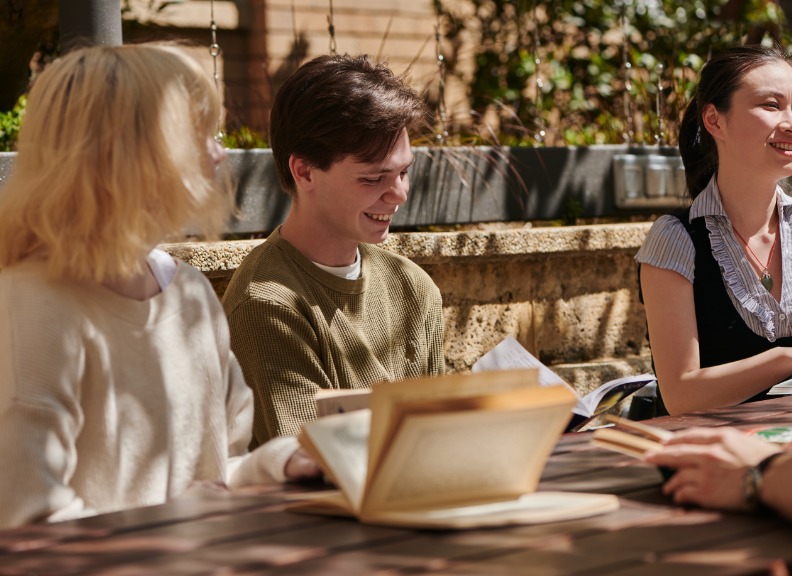FACILITY
The Shakespeare Garden
An homage to the Bard
Hidden away from the hustle and bustle, the Shakespeare Garden is a green space behind the New Fortune Theatre (a faithful reconstruction of the Fortune Theatre in London beside which was a garden). This research-based, permanent creative installation was conceived in 2018 by UWA Professor R. S. White, with research assistance from Ciara Rawnsley and support of the ARC Centre of Excellence for the History of Emotions and UWA.
Although Shakespeare gardens are common in North America, including in New York’s Central Park, UWA’s garden is among the first of its kind in Australia.
Flora selected from over 80 mentioned in Shakespeare’s plays are planted, with criteria of suitability for WA’s climate, aesthetic, pedagogic and scholarly considerations, and sustainable maintenance.
Among many trees, herbs and flowers, we find ‘Wars of the Roses’ (white for York, red for Lancaster) and the pomegranate tree beside ‘Juliet’s balcony’ on which the nightingale ‘nightly sings’. Hedges of box, bay laurel, rosemary and lavender are planted, while ‘sad cypress’, and ‘the barky fingers of the elm’ provide shelter at the western entrance to the New Fortune.
A centrepiece of the garden is Margaret Priest’s sculpture Serpent Fountain, made from copper sheet, a homage to natural forms of plants, living creatures, and water. She also designed the ‘Swan Weather Vane’ on the roof of the Arts Building, visible from the garden.
As the garden matures and more species are incorporated it will be invaluable for research, teaching, recreation, and community outreach.
The garden is a communal space where staff, students and visitors can collaborate, study or re-read their favourite Shakespeare play. Spend a quiet afternoon here and you might find yourself sharing a corner with one of UWA’s famous peafowl who call the Arts area home.
I know a bank where the wild thyme blows,
Where oxlips and the nodding violet grows,
Quite over-canopied with luscious woodbine,
With sweet musk-roses and with eglantine.
Oberon, A Midsummer Night’s Dream, Act 2, Scene 1




